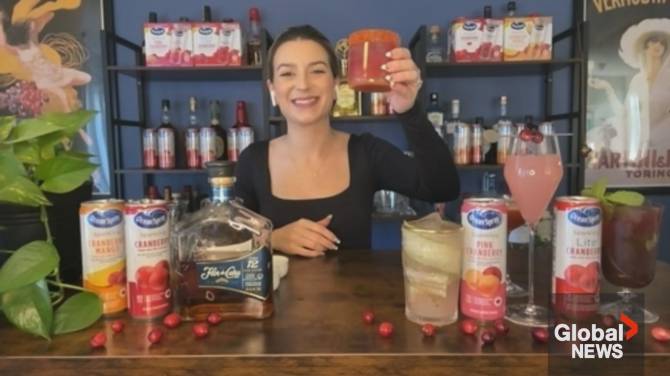A study recently released by researchers from Concordia University in Montreal indicates that cranberries may enhance athletes' performance.
The discovery happened unexpectedly. Francis Parenteau, a PhD candidate in health and exercise science at the university, and lead author, initially wanted to study the effects of cranberries on the cardiovascular function of mice.
“We actually found that it didn’t really have any effects to prevent cardiovascular diseases per se, but it did have some effects on functional capacity,” he tells Global News. “It improved running performance by 30 percent in mice as well as strength by about 20 or 25 percent.”
Andreas Bergdahl, Parenteau’s thesis supervisor, explains the fruit is rich in antioxidants.
“In fact, of all the fruits and vegetables that are consumed in the North American diet,” he notes. “Cranberries have the highest concentration of these polyphenols.”
Given the results, they decided to conduct trials with humans. They provided competitive endurance runners from Concordia, McGill and some Montreal running clubs with a high dose of the cranberry supplement a few hours before their run, based on body weight.
Bergdahl explains that when they observed no difference in performance, they administered the supplements again, but this time, “We told them to take it daily for 28 days.”
Their findings confirmed Parenteau’s results.
“In fact, it improved their running time by about 1.5 percent, which is quite significant, especially in high-level runners,” the PhD candidate notes.
He says strength and recovery time also improved, and the athletes experienced less muscle pains. According to Bergdal, the runners even reported feeling more energized while taking the supplement.
Kevin Harmidy, who researched cranberries as part of his master's thesis at McGill University years ago, says he is not surprised by the findings.
“Many of these modern nutrition products, such as protein shakes and pre-workout mixes, can offer benefits,” he admits. “But in the end, whole foods, raw cranberries, cranberry extracts, consuming solids and leafy greens, I believe those will offer greater benefits.”
Bergdahl believes the findings will have implications beyond high-endurance sports like running.
“It could have an impact on various other groups as well, including people with diseases, special populations, and perhaps even older adults,” he remarks.
Parenteau and Bergdahl plan to continue their research, but for Harmidy, the main point is to consume fruits and vegetables.




